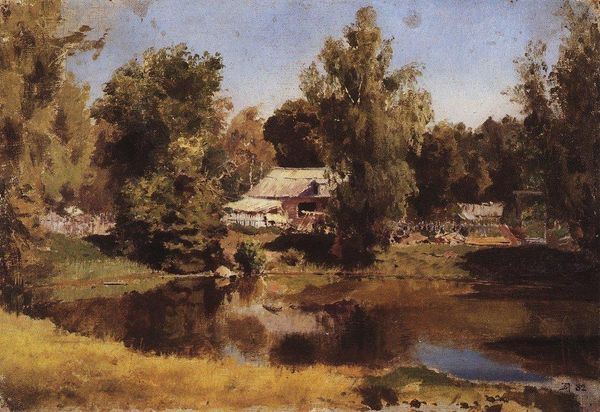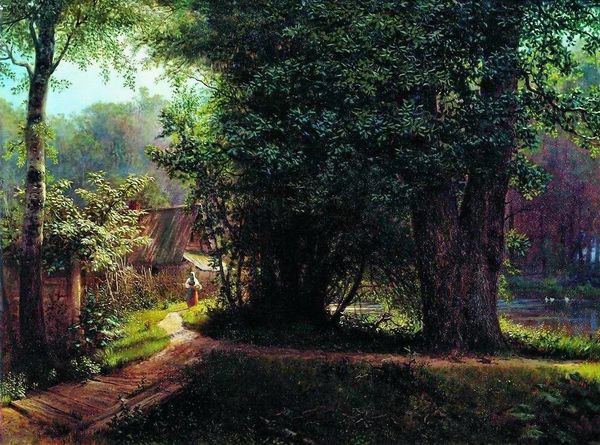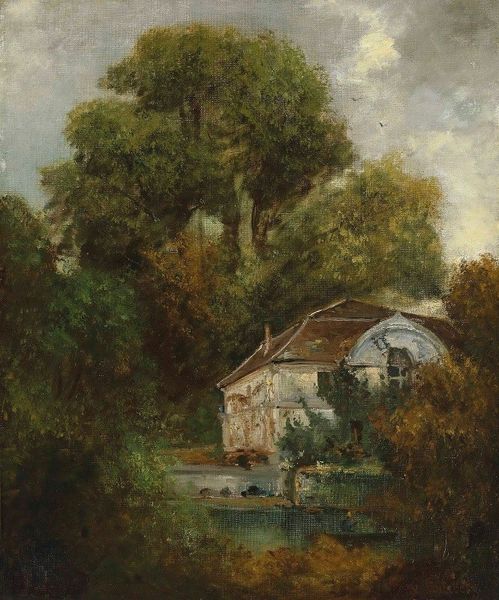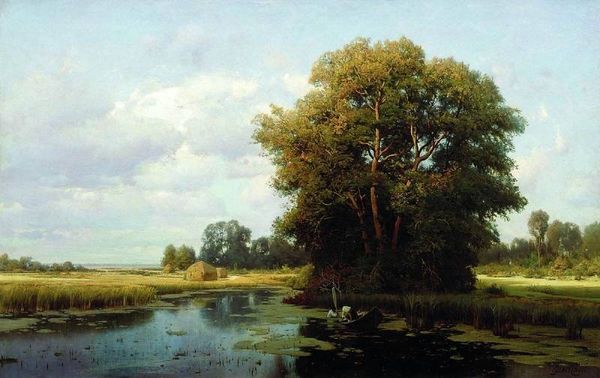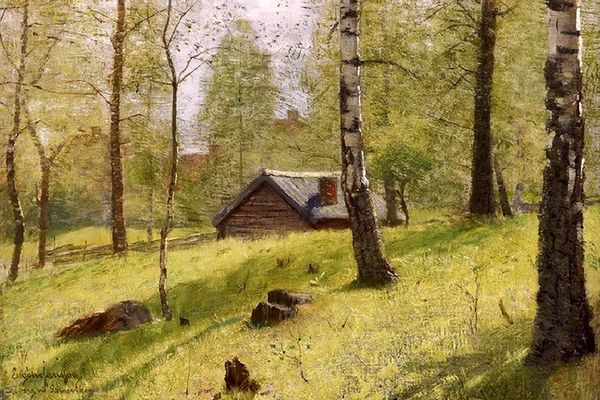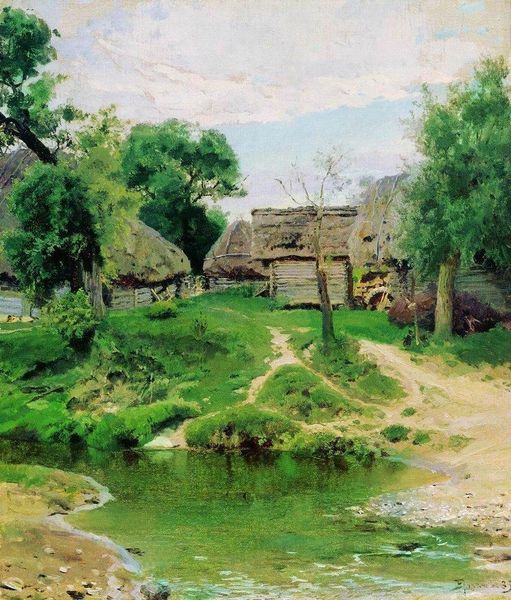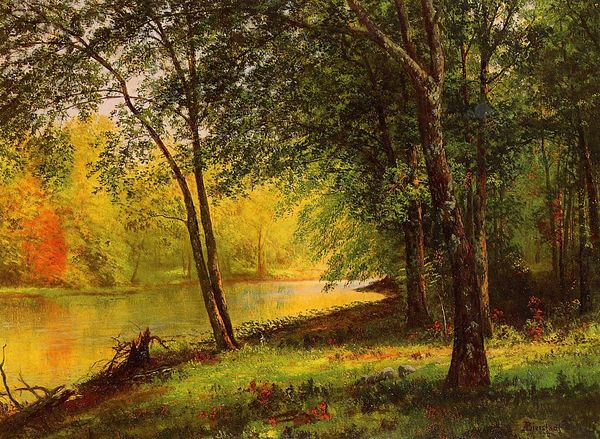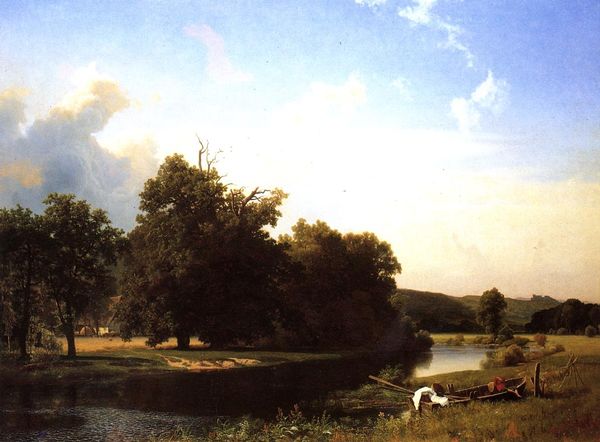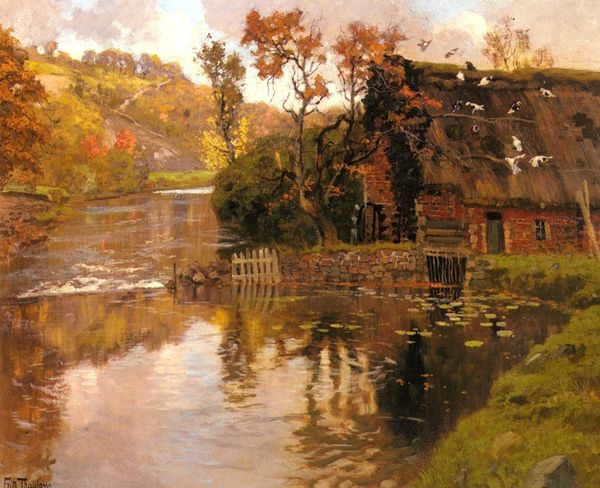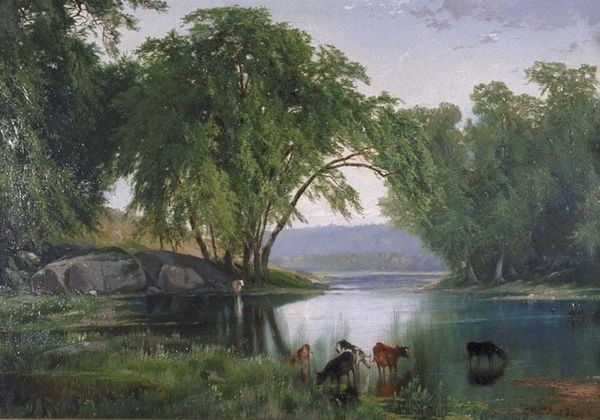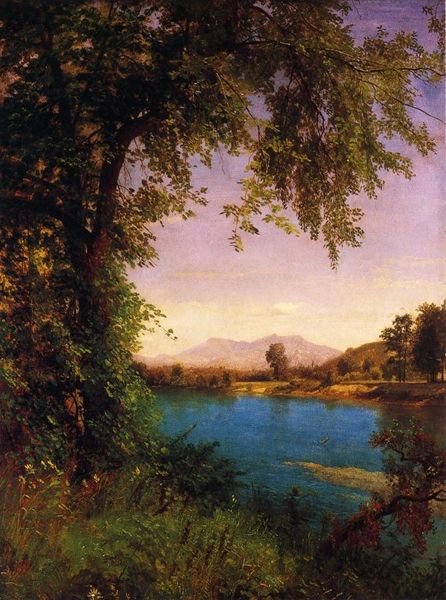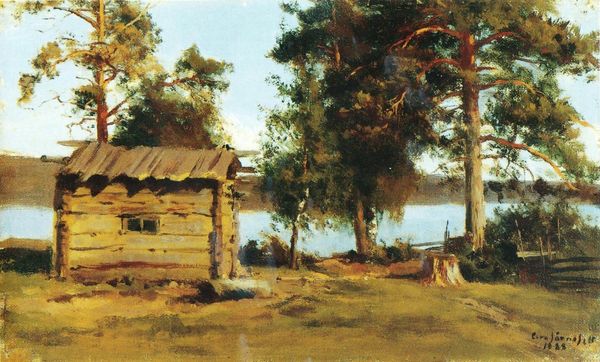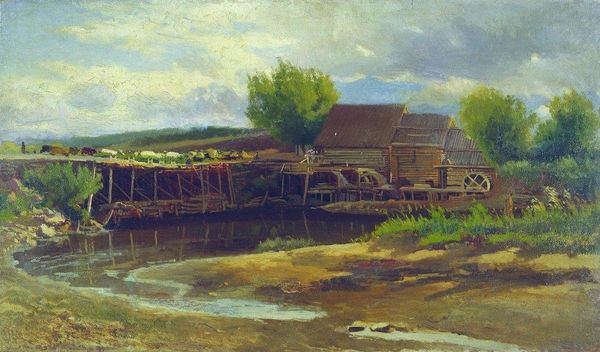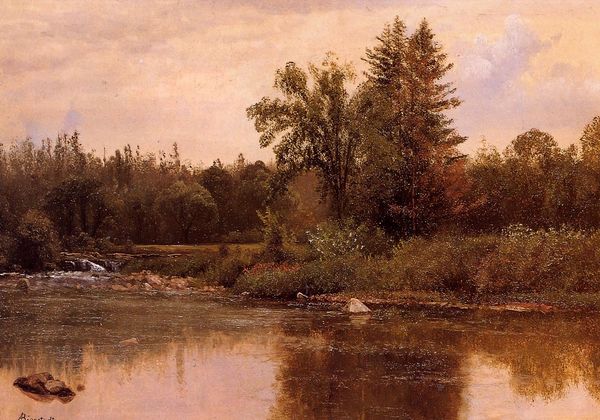
Copyright: Public domain
Editor: So, here we have Vasily Polenov's "Pond in Abramtsevo," painted in 1883. It feels so peaceful and… classically Russian. What do you see in this piece, looking at it from your perspective? Curator: I see a deep connection to the Russian soul. The Abramtsevo estate was a hub for artists seeking to define a national identity, and Polenov uses potent symbols here. The pond itself, a still, reflective surface – think of it as a mirror to the Russian psyche, contemplating its own depths. Do you notice anything about the light? Editor: It's soft, diffused... not dramatic. Almost melancholic? Curator: Precisely. This subdued light doesn't highlight individual features, it unifies the scene, creating a sense of harmony. That harmony extends to the relationship between the natural and the man-made. The building nestled amongst the trees... it’s not dominating, it's integrated. This echoes a long-held belief in Russia, the unity between humanity and the environment. It’s less about individual ego and more about collective belonging. Editor: That makes a lot of sense. The pond as a reflection… a collective identity… Curator: Yes, it's a symbol. Consider how water features often function in dreams – as representations of the unconscious. Polenov seems to suggest a collective unconsciousness, deeply rooted in the land itself. What remains with you? Editor: The quietness. I think I'll remember this pond as a window into Russian identity. Curator: Indeed. It prompts us to ponder the emotional and cultural landscapes within ourselves.
Comments
No comments
Be the first to comment and join the conversation on the ultimate creative platform.
